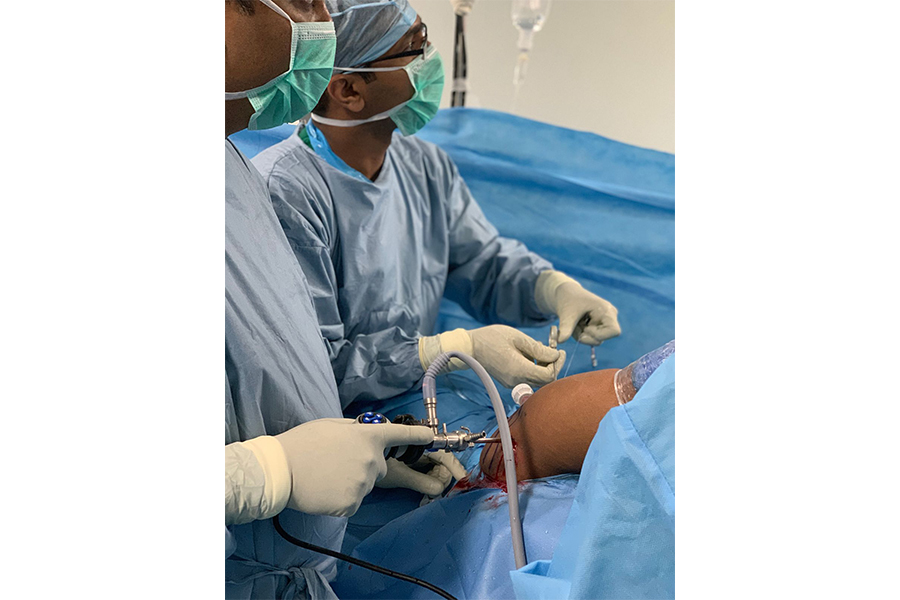- +91 7012749886
- [email protected]

Shoulder arthroscopy or Key hole surgery in the shoulder joint is a minimally invasive surgical procedure used to diagnose and treat various shoulder joint conditions and injuries. It involves the use of a small, flexible tube called an arthroscope, which is equipped with a camera and specialized surgical instruments. We use this technique to access and work inside the shoulder joint through small incisions rather than open surgery, which requires larger incisions.
Here are some common reasons for performing shoulder arthroscopy:
The benefits of shoulder arthroscopy include
compared to traditional open surgery.
Recovery from shoulder arthroscopy typically involves physical therapy and rehabilitation exercises to regain strength and range of motion in the shoulder. The exact recovery time can vary depending on the individual and the specific procedure performed.
If you are advised to undergo Shoulder Arthroscopy and you wish to have a second opinion, then It's important to consult with us to assess your shoulder condition and discuss how shoulder arthroscopy can benefit you. We will consider your medical history, the severity of your condition, and other factors to suggest a personalized treatment plan.